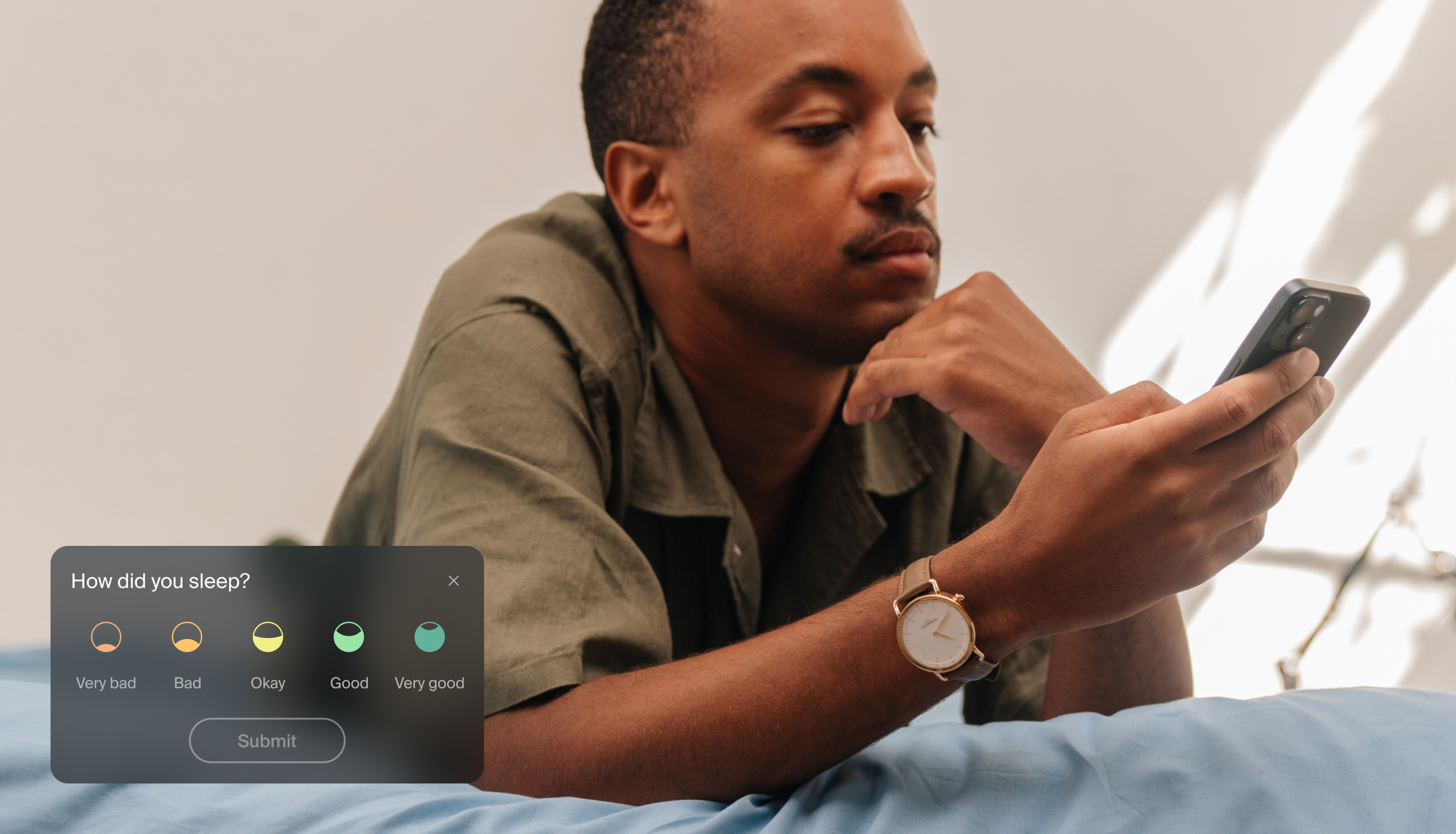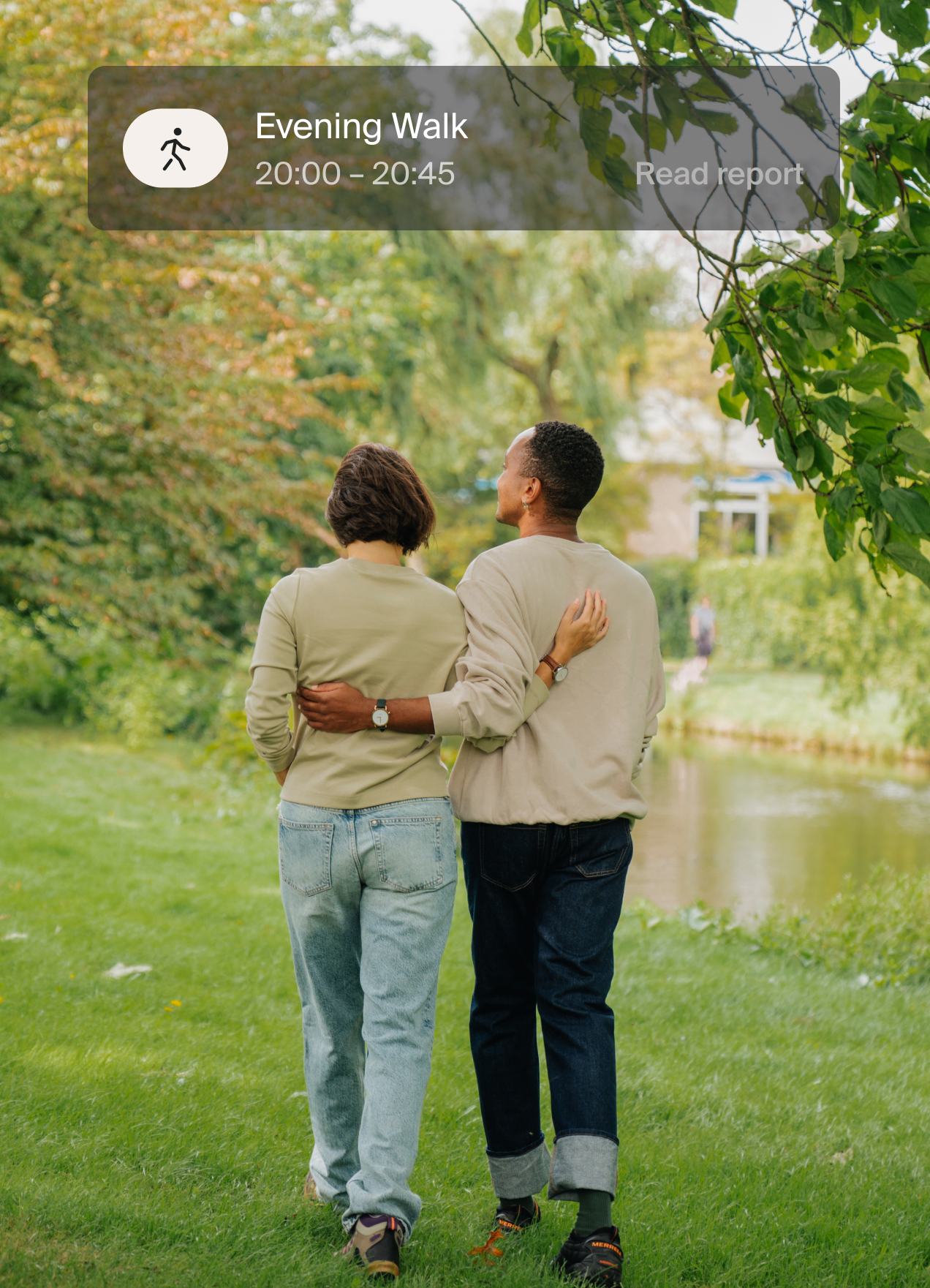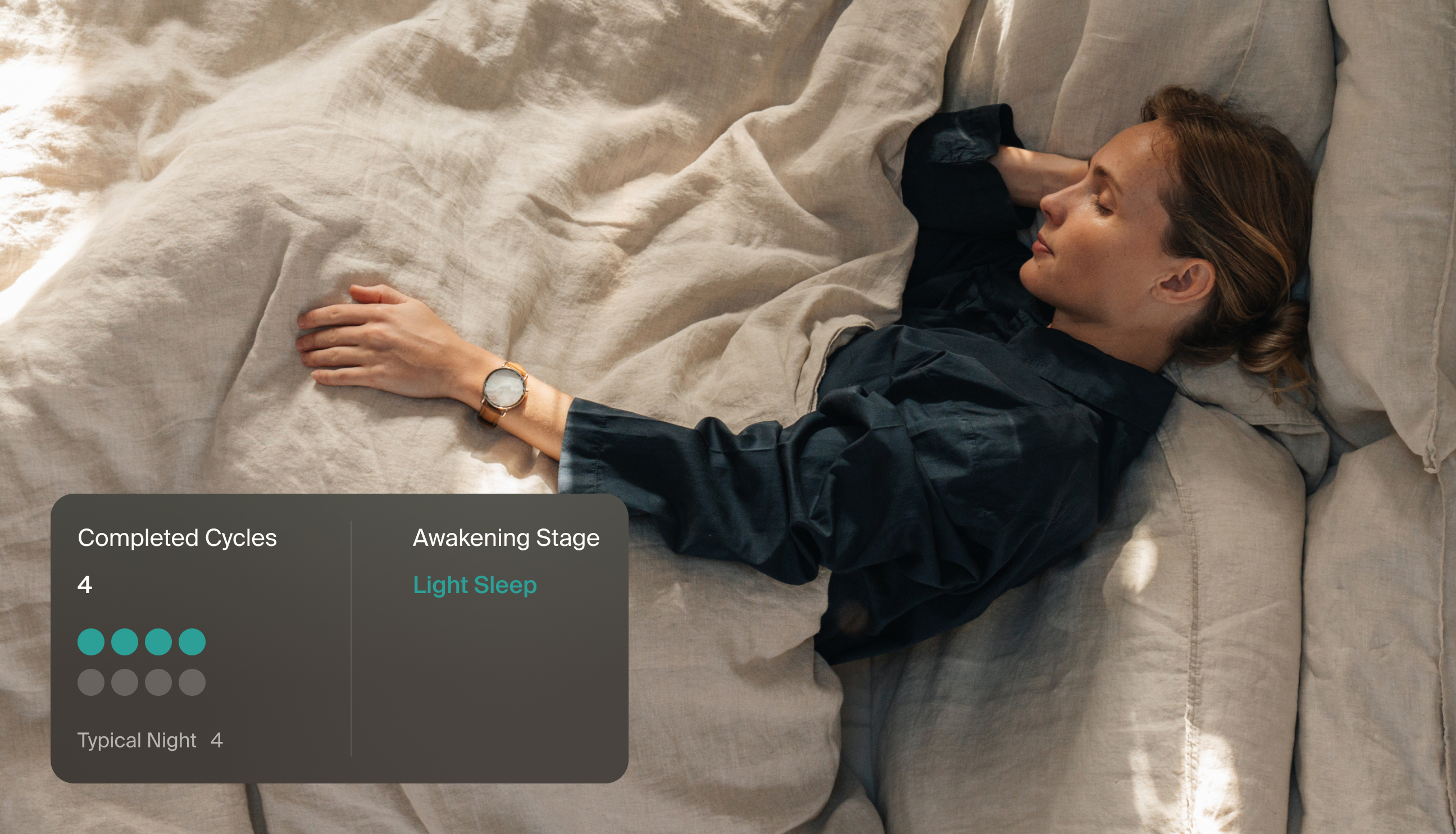Sleep is foundational for your mental and physical health. A “good” night of sleep could look very different between you and someone else—or even between two separate periods of your life. For example, when you become a parent, you might feel just as rested with much less cumulative hours of sleep, as long as those hours are consecutive.
When you experience “bad” sleep, it can affect your:
- Mood
- Energy level
- Stress resilience (your ability to bounce back after experiencing something stressful)
- Immune system
- Productivity
- Concentration
- Memory
Try one or all of the following tips, use your NOWATCH to see how they impact the quality or longevity of your sleep, and discover what “good” sleep means for you.

1. Establish A Soothing Bedtime Routine
How you spend the hours before bedtime influences your sleep. Make sure to follow a soothing bedtime routine with a set of activities, in the same order, on a nightly basis. Try implementing some relaxing activities an hour or so before bed. These can include:
- Taking a bath (the rise and fall in body temperature promotes drowsiness)
- Dimming the lights and read a book
- Doing some stretches
- Practicing meditation
- Taking an evening stroll
Avoid stressful or stimulating activities—such as work, intense arguments, or more graphic movies—before going to bed.


2. Follow A Consistent Sleep Schedule
Try going to bed and getting up at the same time every day. The key is to maintain this sleep schedule even on weekends to avoid jet lag-like symptoms. You can determine your optimal sleep and wake times based on your chronotype (when you naturally feel ready for sleep and ready to wake up) and the amount of sleep you need. If you’re getting enough sleep, you should be able to wake up naturally without an alarm. A consistent sleep schedule that reinforces your natural sleep-wake cycle—or your circadian rhythm—will improve your sleep and help you feel more refreshed and energized in the morning.
3. Lower Your Stress Levels During The Day
Too alert to fall asleep? Racing thoughts? These problems can stem from your daytime habits. If your brain is overstimulated during the day, it can be difficult to slow down at night. You might be overwhelmed at work, constantly distracted by notifications, or chasing after kids. Lowering your stress levels during the day—to the best of your ability—can help calm your mind at bedtime. With NOWATCH you can continuously measure your stress levels and use that data to make real life changes that positively impact your daily stress and your ability to wind down. You can also utilize Check-In Vibrations for a physical, gentle reminder to return to a calm state: If your NOWATCH predicts that you are experiencing stress for a prolonged period (how long is up to you), the watch will provide a vibrational signal as a reminder to try a relaxation exercise.
Examples of relaxation exercises:
- Box-breathing: Breathe in for 4 counts, hold for 4 counts, breathe out for 4 counts and pause for 4 counts
- Conduct a body scan to release tension in different parts of your body
- Listen to soothing music
- Take a quick walk outside in the fresh air
4. Change Your Bedroom Into The Ideal Sleep Environment
Did you know that your bedroom highly influences the quality of your sleep? A dark, cool, and quiet bedroom with good ventilation improves your sleep quality. What does this look like:
Temperature
To prepare for a good night’s sleep, your body's core temperature needs to drop slightly. This drop is related to your natural internal clock, or circadian rhythm, and prompts sleepiness and melatonin production (a hormone that signals the body to prepare for sleep). To establish this drop in temperature and fall asleep more easily, the temperature in your bedroom should be around 18 ℃.
Noise
While we are asleep, our brains can process incoming auditory information. That’s why noise can disrupt your sleep. The World Health Organization guidelines say that for good sleep, the sound level in the environment should not exceed 30 dB(A) for continuous background noise and 45 dB(A) for individual noise events. In other words, noise should be lowered as much as possible. If you cannot eliminate noise when trying to sleep, continuous white noise can be useful, for example by turning on a fan or using a white noise machine. This white noise can block out sudden variations in noise, which will help you to stay in deep sleep and wake up refreshed.
Light
Natural light keeps your internal clock in line with a healthy sleep-wake pattern. The production of melatonin is influenced by light entering the eyes. When light greets your eyes in the morning, melatonin production slows down. At night, when it gets darker and less light reaches your eyes, melatonin production increases. The amount of melatonin in your body follows your circadian rhythm. Because of this, it’s important to have complete darkness in your bedroom to keep your melatonin levels high during the night. Try dimming the lights in your home and limiting screen time within 1-2 hours of your bedtime and installing blackout curtains in the bedroom to ensure maximum darkness.
5. Limit Caffeine And Alcohol Intake
Caffeine is a stimulant that can increase the time it takes to fall asleep, reducing total sleep time and sleep efficiency. If you want to get technical, caffeine has a mean half-life time in your blood plasma of about five hours. This means that within 5 hours, your body has metabolized or processed half the caffeine you consumed. What does this look like on an average day? A cup of coffee in the afternoon can keep you up at night. Note that caffeine is not only found in coffee, but in tea, chocolate, sodas, and some pain relief medication.
In contrast, alcohol can also influence sleep because it is a sedative. As a sedative, this means alcohol helps bring on sleep, but it negatively impacts the quality of your sleep. At higher alcohol doses, the number of sleep disruptions and light sleep periods increase, making it more difficult to get enough deep sleep.

How To Use NOWATCH For Better Sleep
Good sleep contributes to your mental and physical health, and it’s important to prioritize it. Try these tips and see how they impact your sleep. It will take some time before you experience an impact on your sleep quality, so don’t rush it. Sleep is highly personal, so no tip works for everyone. Your NOWATCH can provide insights into your unique sleep and wake patterns and help you discover which habits improve your sleep.
